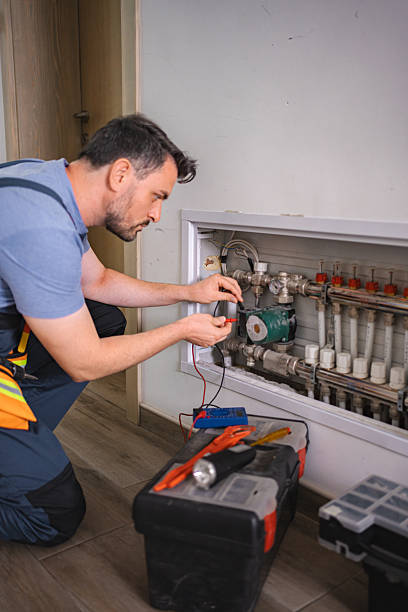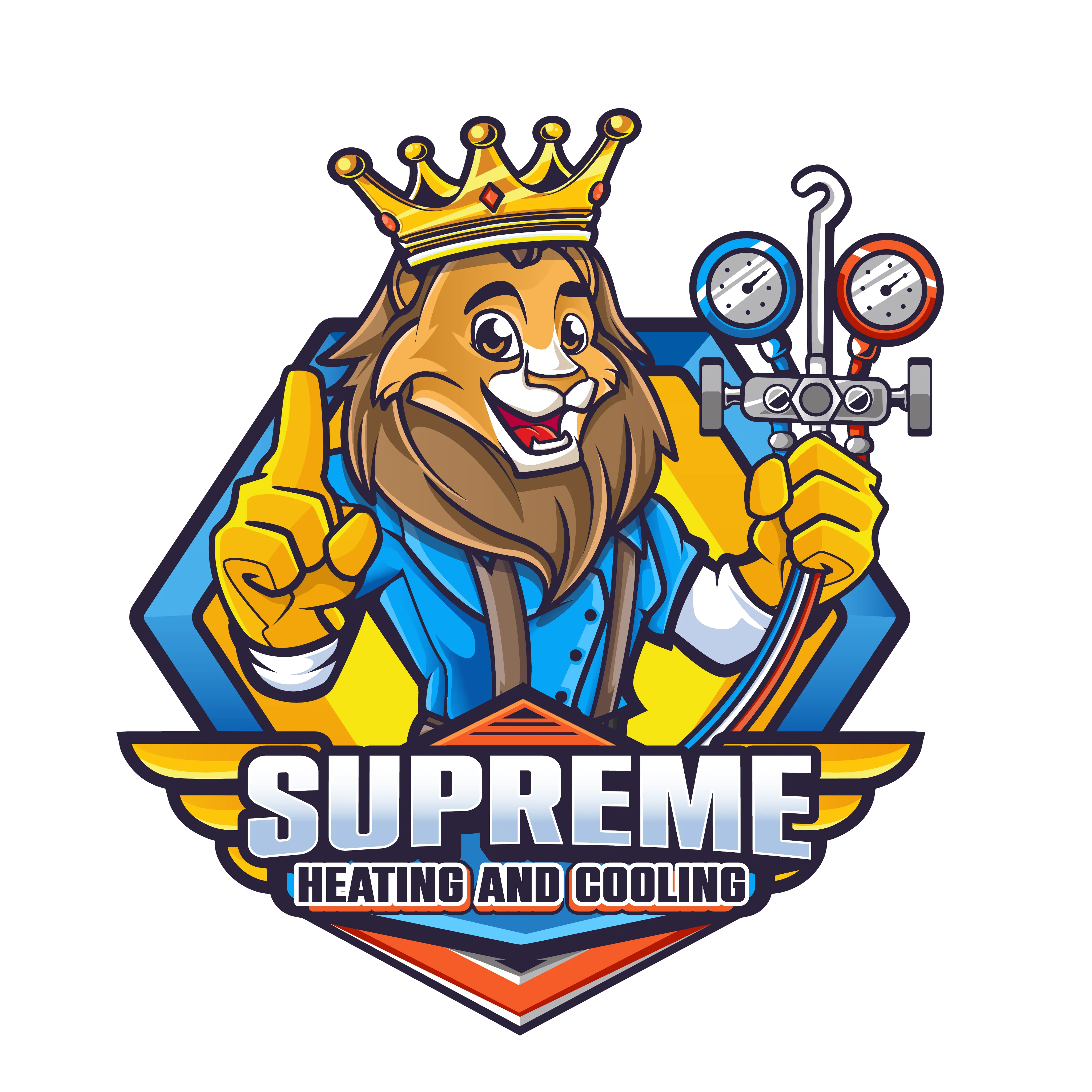
When your electric panel starts to feel warmer than usual, it’s more than a minor inconvenience. For many homeowners in North Huntingdon, it can be an early indicator that something’s wrong with the electrical system. That warmth might seem harmless at first, but this small sign can lead to larger issues if it’s ignored. A warm panel can point to several underlying problems that, if left unchecked, could impact the safety, reliability, and overall performance of your home’s electrical infrastructure.
It’s important to address panel issues early rather than wait for something to go wrong. A malfunctioning panel can strain your electrical system, damage appliances, or even create fire hazards. Whether your home is new or several decades old, knowing why your panel is warm is the first step in preventing long-term damage and staying safe.
Common Reasons Why Electric Panels Overheat
There are several causes behind a warm or hot electric panel, and not all of them are immediately obvious. Some are related to age, while others come down to usage and wear. Knowing what’s behind the problem can guide steps toward a solution.
Here are some of the most common reasons your electric panel may feel warm to the touch:
1. Outdated or Worn-Out Panels: Older electric panels are more likely to overheat. They weren’t built for the number of devices we depend on now. As power demands increase, these aging systems can struggle to keep up.
2. Loose or Corroded Connections: Worn terminals or poorly tightened components inside the panel can create resistance. That extra resistance generates heat and results in a panel that feels warm or even hot.
3. Overloaded Circuits: If you’re running too many appliances or devices on a single circuit, it can overwork the panel. This load imbalance can push a panel beyond what it was designed to handle.
4. Internal Component Damage: Burned breakers or damaged wiring inside the panel can go unnoticed but still produce significant heat. These problems typically develop over time and worsen when ignored.
One example is a family that installed several high-powered kitchen appliances over the course of a few months. Without realizing it, they were routinely overloading a single circuit, which eventually made their panel feel hot. After a full inspection revealed that part of the panel had become damaged, they replaced it with a modern system sized correctly for their usage.
Recognizing these common causes early can help prevent more serious damage. If your panel is warm and you’re unsure why, a deeper inspection may be necessary to avoid safety risks.
Warning Signs of a Failing Electric Panel
Spotting the red flags early can help reduce risk and protect the electrical system in your North Huntingdon home. A panel that constantly feels warm is just one indicator. Several other signs might also point to underlying trouble with the system and shouldn’t be ignored.
Here’s what to keep an eye on:
1. Consistently Warm or Hot to the Touch: If the panel cover is warm across multiple days—especially when few appliances are running—it could signal a deeper problem like damaged breakers or wiring.
2. Frequent Tripping of Breakers: Breakers that trip often may suggest a circuit is being overloaded. While this feature exists to prevent danger, repeated trips shouldn’t be happening under normal usage.
3. Buzzing or Sizzling Sounds: Faint but steady noises coming from the panel could point to loose parts sparking under load. These sounds mean immediate inspection is needed.
4. Burn Marks or Discoloration: Signs of charring, browning, or any visible heat damage near the breakers or outside the panel may indicate overheating has already started causing breakdowns.
Don’t wait for a complete outage or worse. If you notice even one of these signs along with a warm panel, it’s time to act.
Risks of Letting a Warm Panel Go Unchecked
There’s more at stake than a minor electrical inconvenience. When an electric panel overheats, it puts the entire home at risk. Ignoring the warning signs can cause damage that spreads well beyond the panel itself.
Fire is the biggest concern. Overheating inside a panel can lead to melted wires, arcing between connections, or damaged breakers that no longer work as intended. These dangers don’t just threaten your circuits—they threaten your property and people inside the home.
Other risks include:
– Electrical shocks from malfunctioning breakers
– Reduced lifespan of appliances connected to faulty circuits
– Higher electricity use due to poor power transfer
– Expensive repair work if damage spreads beyond the panel
One example from North Huntingdon involved a homeowner who noticed their lights dimming whenever the microwave ran. The panel looked fine on the outside, but it had corroded connections inside causing power to drop. By the time it got checked, two of their major appliances had already begun showing signs of electrical damage. An upgrade prevented further loss.
Fixing and Preventing Panel Overheating
Once signs of overheating are clear, the next step is taking action. Whether you’ve noticed a warm panel or just want to stay ahead of future issues, there are some practical steps you can take.
1. Schedule Regular Inspections: Electrical systems should be checked regularly by our professionals. That includes testing breakers, checking for loose connections, and verifying load capacity.
2. Upgrade to a Modern Panel: Older homes in North Huntingdon often have systems that aren’t rated for today’s household loads. Upgrading to a newer panel helps handle current power demands safely and efficiently.
3. Distribute Loads Properly: Making sure that large power loads—like HVAC units, ovens, or washers—are balanced across circuits prevents constant strain on individual breakers.
4. Avoid DIY Work: When it comes to electrical panels, fixing issues yourself can be dangerous. Our technicians are trained to identify problems properly and fix them without increasing risk of fire, shock, or system failure.
These steps are especially helpful ahead of the summer when fans, air conditioners, and other units are used more often. Even a slightly warm panel can get worse when heat and electrical load both rise at the same time.
Protect Your North Huntingdon Home with a Panel Upgrade
A warm electric panel isn’t something to take lightly. What feels like a mild concern can quickly evolve into larger, more costly problems. Whether it’s loose wiring, overloading, or aging components, the issue rarely resolves itself. Being aware of early signs and knowing the risks puts you a step ahead.
For homeowners in North Huntingdon, upgrading an electric panel isn’t just about convenience—it’s about long-term safety and peace of mind. Our professionals are experienced in diagnosing and addressing these problems before they turn into emergencies. If your panel feels warm, it may be time to consider a full upgrade.
An electric panel that operates properly can support your modern appliances, provide more consistent power, and reduce the risk of fires or breakdowns. Staying on top of this now can help protect your home for years to come.
If your home shows signs of a degrading electrical system, taking a proactive step can prevent more significant issues down the line; an electric panel upgrade in North Huntingdon may be just what you need to ensure safe, reliable power for your modern appliances and reduce the risk of fire or electrical shock. Supreme Heating and Cooling is dedicated to keeping your home safe and running smoothly, so for a quick estimate or to book a service visit, please contact us today.

.svg)

.webp)


.svg)
.webp)
.svg)
